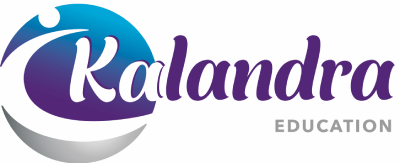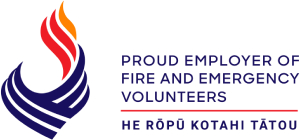Diploma in Mental Health Support (Level 5) - International Students
2026 Programme Start Dates:
- 26 January
- 2 March
- 20 April
- 1 June
- 31 August
- 23 November
Note: all intake dates are subject to change depending on the number of enrolments
Pre programme study required:
Online = $300
This can be undertaken while awating the programme to commence and visas to be approved, it must be completed prior to the programme starting.
Course Fees:
- Tuition = $16,000
- Course Costs = $2,250 (this includes; placement fees, police vetting, workplace scrubs, any applicable registration)
- Travel and Medical insurance = $950.00 approx. for 13 months (Southern Cross - quoted 10/05/2024) should you want us to arrange it*
Total Fees = $19,200
*International students must have appropriate and current travel and medical insurance for the duration of their planed period of study. Kalandra Education Group can provide travel and medical insurance through Southern Cross Travel Insurance or an alternative provider. Travel Insurance is compulsory for all international students studying at Kalandra Education Group
Programme Overview
NZQF: Level 5
Total credits: 120
Delivery length: 52 weeks (including 4 holiday weeks as set prior to the programme commencing)
Total learning hours: 1200
Directed online learning: Face-to-Face (in class)
Work placement: will be arranged to enable you to complete your 400 hours required (non paid). Should you obtain part time work (visa permitting) in Healthcare, these hours may be able to be counted.
At successful completion of the Diploma in Mental Health Support (Level 5), students will be awarded the New Zealand Diploma in Health and Wellbeing (Practice/Applied Practice), Level 5.
Programme Purpose
This NZQA approved Diploma in Mental Health Support (Work-integrated) (Level 5) programme is designed for those working (or intending to work) in mental health, who are seeking career advancement or professional growth. The health and wellbeing sector in New Zealand will benefit from having access to graduates with knowledge and skills in mental health and mental health planning for supporting clients and whanau to maximise health and wellbeing outcomes. mental health organisations and aged care facilities will benefit from having access to graduates who have undertaken studies that were integrated with practical workplace settings.
Graduates of this programme will be able to work independently, planning and revising mental health strategies, and applying culturally appropriate, responsive care in a mental health support setting.
The types of theory covered in the programme include:
- Mental Health
- Healthcare Models
- Evidenced-based Approaches
- Person-centred Theory
- Values-based and Authentic Leadership
At successful completion students will be awarded the New Zealand Diploma in Health and Wellbeing (Practice/Applied Practice), Level 5.
The Diploma in Mental Health Support (Level 5) programme is taught in six modules:
Module 1 – Factors influencing Mental Health Support (15 credits)
This module explores leadership and support practices used to develop positive health and wellbeing outcomes for clients and wh?nau while considering the social, cultural, economic and political factors that impact the health and wellbeing environment.
Module 2 – Collaboration in Mental Health Support. (15 credits)
This module explores the development of Mental Health strategies. The module introduces the concept of collaboration practice using recognised M?ori health models that provide a te ao M?ori perspective.
Module 3 - Mental Health Care Planning. (32 credits)
This module explores the ideas of integrated Mental Health care planning using reflective practices with a focus on value-based leadership, workplace responsiveness and te ao M?ori perspectives.
Module 4 - Apply and anallyse a range of Health and Wellbeing Models. (30 credits)
This module explores the development of Mental Health Support plans and facilitates the enhancement of communication and behavioural strategies, to meet the needs of the client.
Module 5 - Reflective Practice and Professional Development (15 credits)
This module explores the application of healthcare models for the development of health and wellbeing outcomes and associated strategies.
Module 6 - Professional Capacity (13 credits)
This module focuses on the demographic factors impacting the client’s need for Mental Health Support. Using analysis and comparison of M?ori and Pasifika health models it provides the opportunity to enhance professional competence in the delivery of mental health support.
Programme Outcomes
At the end of the programme, graduates are able to:
- Integrate theory and knowledge of health and wellbeing to identify the health and wellbeing aspirations of people from diverse contexts.
- Critically select and apply a range of evidence-based practices to support people to meet their health and wellbeing aspirations.
- Maintain awareness of the socio-cultural, economic, and political factors impacting the wider health and wellbeing environment to provide responsive and current support practices.
- Critically select and apply a range of evidence-based practices informed by knowledge of te ao M?ori to support the health and wellbeing aspirations of tangata whenua.
- Apply advanced strategies and practices to respond with sensitivity to people from diverse contexts.
- Critically reflect on and evaluate own support practice to achieve continuous improvement.
Programme Pathways
Education Pathways: Graduates may progress into the New Zealand Diploma in Addiction Studies (Applied) (Level 6)
This programme may lead to higher-level programmes including bachelor’s degrees in related subjects, including nursing, physiotherapy, occupational health and allied health professions. Graduates may also be able to apply for cross-credit or advanced standing into Healthcare related bachelor programmes.
Employment Pathways:
Team Leader or supervisor in aged residential care
Team leader or supervisor in home/community care
Team leader in Department of Corrections health facilities
Team leader in mental health organisations
Entry Criteria
All international applicants must be at least 18 years of age on or before the first day of the semester
in which the proposed programme of study is offered.
- International students must have gained, within 2 years prior to enrolment, an IELTS test result with an Academic score of 5.5 with no band score lower than 5 or PTE (Academic) score of 42 with no band score lower than 36 or the equivalent as per NZQA's Table of Internationally Recognised English Language Proficiency Outcomes for International Students or provide evidence of meeting other requirements described in Rules 18.2 to 18.4 of the NZQF Programme Approval and Accreditation Rules 2018.
- All applicants must provide evidence of achievement at an equivalent level to a qualification at Level 4 or above on the NZQF.
- Healthcare sector qualifications / experience confirmed with academic transcripts or work placement documents.
- Physically able to do the job
- Willingness to work with the older person
- All applicants must attend an interview - the interview will determine academic capability, maturity level and the ability of the applicant to undertake studies at level 5 on the NZQF.
- Evidence of work placement activity by providing references.
- Clean criminal check (an initial check is to be provided from country of last abode).
* Pre programme study completed prior to start date of the programme in mental health
To Apply.
Complete the Application form and email with your passport, current visa copy, English proficiency results, and other supporting documentation to: training@kalandra.ac.nz
Click on this link to download the Student Handbook 2025/2026.
Tuition in Face-to-Face
It is required that you have a device (laptop, tablet etc.) in order to complete your studies successfully. Assessments and supporting material are accessed through TALENT, our online learning platform. You must also undertake research online and produce documents using Microsoft Office - Word, Excel, PowerPoint.
The following computer suppliers have competitively-priced example devices:
Last Updated: 26 November 2025
Back to programmes










